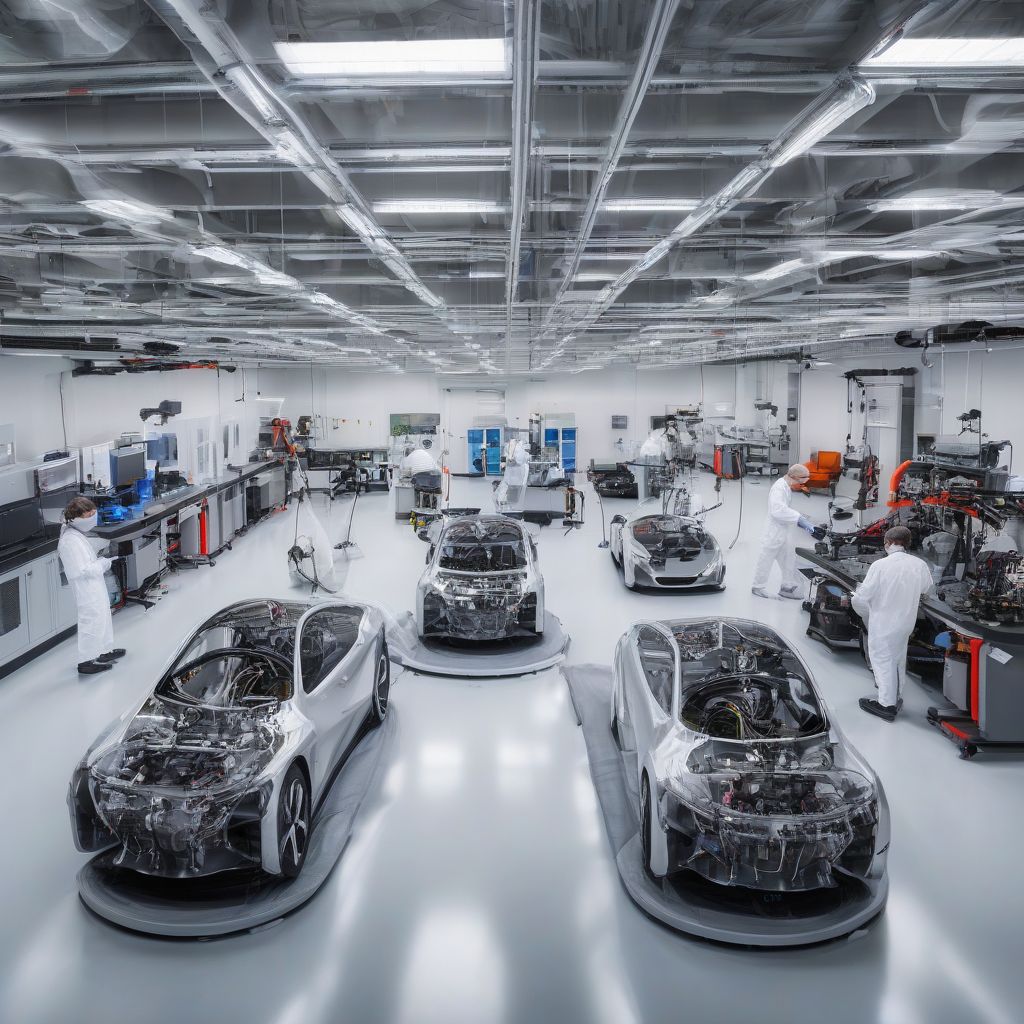The automotive industry is on the cusp of a revolution. With advancements in electric vehicles, autonomous driving, and connected car technologies, the need for dedicated research and development has never been greater. This is where Automotive Research Centers take center stage, driving innovation and shaping the future of mobility.
What is an Automotive Research Center?
An automotive research center is a specialized facility dedicated to advancing automotive technology. These centers serve as hubs for cutting-edge research, development, and testing in various areas, including:
- Vehicle electrification: Researching and developing electric vehicle technologies, battery systems, charging infrastructure, and more.
- Autonomous driving: Advancing self-driving car capabilities, encompassing areas like sensor technology, artificial intelligence, machine learning, and computer vision.
- Connected and intelligent vehicles: Exploring vehicle-to-vehicle (V2V) and vehicle-to-infrastructure (V2I) communication, infotainment systems, and advanced driver-assistance systems (ADAS).
- Vehicle safety: Conducting crash tests, developing advanced safety features, and improving vehicle structural integrity.
- Sustainability and efficiency: Researching alternative fuels, lightweight materials, and aerodynamic designs to enhance fuel efficiency and reduce environmental impact.
The Importance of Automotive Research Centers
Automotive research centers play a pivotal role in pushing the boundaries of automotive technology. Here’s why they are essential:
- Driving innovation: These centers foster a collaborative environment where engineers, scientists, and industry experts work together to develop groundbreaking technologies.
- Accelerating technological advancements: The focused research and development conducted at these centers lead to faster advancements in automotive technology, bringing innovations to the market more quickly.
- Addressing industry challenges: Automotive research centers tackle critical challenges faced by the industry, such as improving vehicle safety, reducing emissions, and enhancing fuel efficiency.
- Training future automotive leaders: Many centers collaborate with universities and educational institutions, providing valuable training and research opportunities for future automotive engineers and researchers.
 Automotive research center lab
Automotive research center lab
Key Areas of Focus in Automotive Research
Automotive research centers are engaged in a wide array of research areas. Here are some of the key areas of focus:
1. Electric Vehicle Technology
Research in this area focuses on:
- Improving battery technology: Extending range, reducing cost, and enhancing the lifespan of electric vehicle batteries.
- Developing efficient charging infrastructure: Creating faster, more convenient, and widely accessible charging solutions.
- Exploring alternative battery chemistries: Investigating new battery materials and designs to improve performance and sustainability.
2. Autonomous Driving Systems
This field encompasses research in:
- Sensor technology: Developing and refining sensors like LiDAR, radar, and cameras for accurate environmental perception.
- Artificial Intelligence (AI) and machine learning: Training AI algorithms to make driving decisions, navigate complex environments, and respond to unexpected situations.
- Safety and validation: Rigorously testing autonomous driving systems in simulated and real-world environments to ensure safety and reliability.
3. Connected Car Technologies
Research in this area centers on:
- V2V and V2I communication: Enabling vehicles to communicate with each other and infrastructure to improve safety, traffic flow, and navigation.
- Infotainment systems: Developing advanced in-car entertainment, information, and communication systems.
- Cybersecurity: Ensuring the security of connected car systems and protecting against cyber threats.
The Future of Automotive Research
The automotive industry is in a constant state of evolution. As we look to the future, automotive research centers will continue to play a vital role in shaping the mobility landscape. Here are some trends that will likely drive future research:
- Artificial intelligence and machine learning: AI will play an increasingly important role in autonomous driving, vehicle design, and driver assistance systems.
- Data analytics and the Internet of Things (IoT): Data collected from connected vehicles will be used to improve vehicle performance, optimize traffic flow, and develop personalized driving experiences.
- Sustainable mobility solutions: Research will focus on developing eco-friendly vehicles, alternative fuels, and sustainable manufacturing processes.
Conclusion
Automotive research centers are the engines of innovation in the automotive industry. By fostering collaboration, pushing technological boundaries, and addressing critical industry challenges, these centers are shaping the future of mobility. As we move towards a future of electric, autonomous, and connected vehicles, the role of automotive research centers will only become more critical in developing safer, more efficient, and sustainable transportation solutions.

